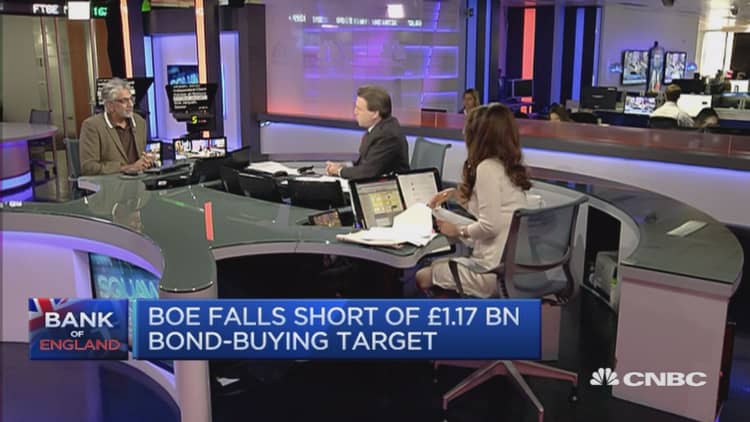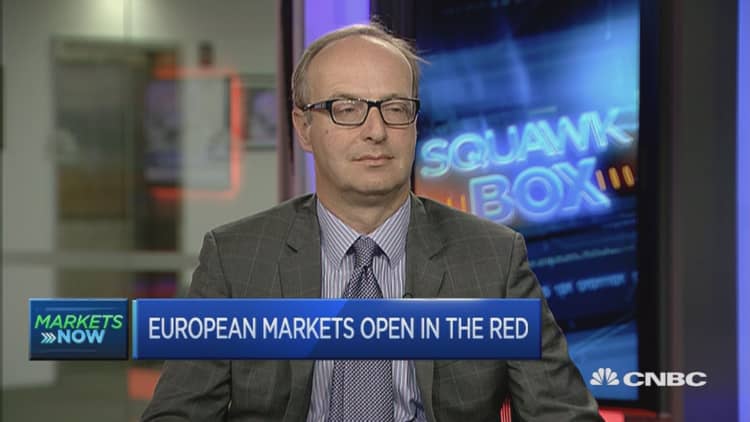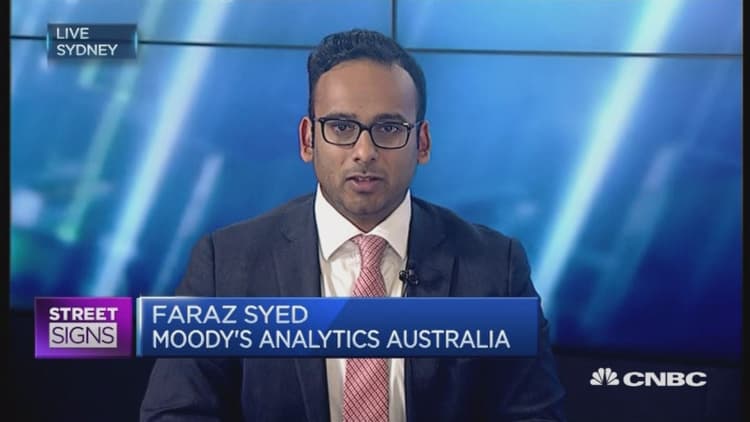


Fixed income has absolutely no value and investors should instead prepare for the return of inflation to the global economy, according to Stephen Isaacs, the chairman of the investment committee at London-based alternative advisory firm Alvine Capital.
Isaacs - who was previously the director of fixed income trading and syndication at Credit Suisse - believes that more fiscal policy will take the strain from monetary policy as "rampant populist pressures" start to take hold.
"I think monetary policy is a dead duck and I think bond yields at this level for investors represent absolutely no value and a huge amount of risk. What I would like to focus on is the coming fiscal reflationary trade because I think that is creeping out of the woodwork in many places," he told CNBC Wednesday.
"I would sell all the gilts I had to the Bank of England," he added.
Treasurys
Since the global financial crash of 2008, central bank policy has focused on buying up bonds in large quantities -- which directly benefits the fixed income market. However, more fiscal planning by governments - as seen by Japan last week and hinted at by the U.K. finance minister - is expected to lead investors towards inflation hedges like equities and will see bond yields creep higher.
Government deficits in France are likely to creep higher due to increased spending on security and defense in light of recent terrorist attacks, according to Isaacs. The about-turn on austerity in the U.K. following the Brexit vote will also boost inflation, he added. In the U.S., Republican presidential candidate Donald Trump has this week spoken of "massive fiscal stimulus" and "huge tax cuts" if successful in the upcoming elections, he concluded.
Isaacs believes that these factors will see the issuance of government "absolutely explode" in the coming months and will lead bond yields higher as fixed income assets fall in price with the oversupply. Bond yields have an inverse relationship to the price. Conversely, a £60 billion ($78 billion) stimulus program by the Bank of England suffered an embarrassing shortfall on Tuesday as bondholders refused to sell up.
While not alone with his thesis, Isaacs' view has generated fierce debate over the years , with many market-watchers incredulous at how bond yields can dip even lower into negative territory. In June 2013, Wells Capital Management, Citi and Societe Generale all forecast the 10-year U.S. Treasury bond yield to push significantly higher. This failed to materialize, however, with continued global growth concerns and more easy monetary policy.
Bob Janjuah, senior independent client adviser at Nomura, added to the debate, telling CNBC Wednesday "The argument against bonds I have heard for the last five years. (German) bunds can't get any lower than 2 percent, Treasurys can't get lower … I am not going to say it is going to happen but we can get negative rates at -3 percent. We are in a world where policymakers are making up as we go along,"
Taking an alternative view, Janjuah sees only a short-term fillip from increased fiscal loosening as "governments are terrible at spending money."
"The initial feel good is there, but the reality of a positive fiscal multiplier ... I think the outcome will be very, very poor," he said.
His words come after data from China this week showed a softer decline in producer prices which helped to fuel expectations that overcapacity in the economy was ebbing and the environment of weak inflation might be ending.
Nonetheless, Credit Suisse has also suggested that fiscal planning can only go so far. In a note last week a team of analysts at the bank suggested that equity investors would have discounted any benefit from the trend of fiscal policy by the second half of next year.


